Softball Recruiting Contact Date Set To September 1 Of Junior Year
Softball Recruiting Contact Date Set To September 1 Of Junior Year
The NCAA Division I Council has made Sept. 1 of a prospective student-athlete’s junior year the new start date for all softball recruiting contact.
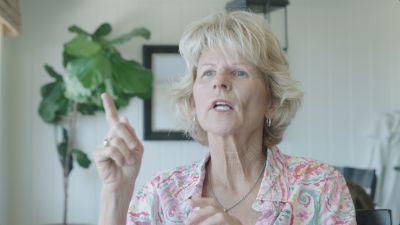
Information provided courtesy of NFCA.org
INDIANAPOLIS — On Wednesday, the NCAA Division I Council announced that it passed legislation establishing September 1 of a prospective student-athlete’s (“PSA's”) junior year as the start date for all softball recruiting contact, effective immediately, pending NCAA Board of Directors' approval.
This means that all recruiting communications between Division I softball coaches and PSAs and their families will be impermissible prior to September 1 of the junior year.
The NFCA considers this legislation a huge win for the softball community.
Early recruiting was a hot topic at the December 2017 NFCA Convention. DI coaches spent several hours discussing the problem of committing PSAs as young as the sixth and seventh grades. Consensus emerged that a clear, bold line rule governing all recruiting contact would slow the process down.
The “lacrosse model” passed last year by the NCAA, which set September 1 of junior year as the start date for all recruiting contact, became the definitive preference of the softball coaches after considering other potential options. Getting something in place as soon as possible was a priority. Lobbying efforts commenced immediately.
At this week’s NCAA DI Council meetings, the Student Athlete Experience Committee (SAEC) proposals 2017-111, 2017-112, 2017-113 were approved, establishing September 1 of junior year as the start date for official visits, unofficial visits and recruiting conversations at camps and clinics for all sports except for football and basketball. Since these SAEC proposals passed, softball’s request to include incoming telephone calls and off-campus visits were voted on and approved as “noncontroversial legislation.” This means that for softball, all recruiting contact will begin September 1, junior year.
NFCA Executive Director Carol Bruggeman believes this is a defining moment for the softball coaches, fans, and student-athletes.
"This is a great day for the sport of softball! Early Recruiting legislation has passed,” she said. “I am so proud of the entire softball community for coming together to do what is best for the sport. Thank you to our coaches for being the driving force behind the change and to the NCAA for voting to pass this impactful legislation. The real winners are the softball prospective student-athletes, who can now make informed college decisions at an age-appropriate time."
NFCA Board President Karen Weekly was a key supporter in this change and is grateful for the far-reaching support offered to the initiative.
“I am very pleased that the NCAA DI Council listened to the entire softball community and passed legislation that will truly address the problem of early recruiting,” Weekly said. “Many people worked extremely hard to accomplish this goal and I am grateful for their efforts. A special thank you to everyone in the NFCA office for their perseverance on behalf of this legislation. Without their organization and passion, it would not have been possible!”
One NCAA interpretation that is critical for this new rule to work is that third parties, including but not limited to travel ball and high school coaches, may not be used to circumvent NCAA recruiting rules.
Messages may not be passed through any third parties in an effort to continue recruiting communications between coaches and PSAs; this would be considered an NCAA rule violation. Consequences for NCAA rule violations can vary based on the facts and history of the parties involved. For many coaches, an NCAA rule violation can be grounds for termination.
The NCAA issued an informative Educational Column when this recruiting rule passed for lacrosse, clarifying scenarios and answering frequently asked questions. We recommend that everyone review this Q&A column below.
This new recruiting contact rule does not affect the status of “verbal commitments,” as currently the NCAA does not recognize or legislate such agreements. However, this new rule does govern all communications between any PSA and any Division I softball coach, regardless of verbal commitments or otherwise.
Bruggeman recognized, “For some PSAs, this means having committed to play at a program and then not being able to communicate with that coach for a few years. This will be challenging, but the bright line needed to be drawn and there are no exceptions.”
While change can be hard, the NFCA and the vast majority of DI softball coaches agree that this change is absolutely necessary. This is a time to celebrate a major NCAA legislative accomplishment and a better era of recruiting for the great sport of softball.
Type: Educational Column
Title: Proposal No. 2017-1 Recruiting -- Off-Campus Contacts, Telephone Calls and Unofficial Visits -- September 1 of Junior Year -- Lacrosse (I)
Division: I
Date Issued: July 13, 2017
Date Published: July 13, 2017
Item Ref No: 1
Editor's Note: This educational column reflects the most recent Question and Answer Document associated with the proposal. Question Nos. 4, 6, and 7 were added to provide additional clarification to the membership.
This document contains questions and answers to assist the NCAA membership in its understanding of Proposal No. 2017-1 (off-campus contacts, telephone calls, and unofficial visits—September 1 of junior year—lacrosse).
Question No. 1: What is a coach permitted to say if a prospective student-athlete
initiates a call or contact with an institution's coach prior to September 1 of the prospective student-athlete's junior year?
Answer: The coach may not engage in any recruiting conversations. However, the coach may confirm the prospective student-athlete's age, explain the recruiting rules and then must end the call or contact.
Question No. 2: During an institutional camp or clinic, may a coach have recruiting conversations with a prospective student-athlete prior to September 1 of his or her junior year?
Answer: No.
Question No. 3: During an institutional camp or clinic, may a coach provide a campus tour to a prospective student-athlete prior to September 1 of his or her junior year?
Answer: Yes. A campus tour would be permissible; however, no recruiting conversations may occur.
Question No. 4: During an institutional camp or clinic, may a coach provide an informational session about the recruiting process and the student-athlete experience to a prospective student-athlete prior to September 1 of his or her junior year?
Answer: Yes. A general informational session would be permissible; however, no institution-specific information may occur at these informational sessions. Recruiting conversations are not permissible.
Question No. 5: May an institution's coach send recruiting messages through a prospective student-athlete's high school/club coach or another third party?
Answer: No. If a coach cannot contact a prospective student-athlete directly, then he or she cannot send recruiting messages indirectly through a high school/club coach or another third party.
Question No. 6: May an institution's coach have evaluative conversations (e.g., regarding athletics ability) with a prospective student-athlete's high school/club coach before September 1 of the prospective student-athlete's junior year?
Answer: Yes. However, these conversations are not permitted to be used for the purpose of indirectly sending recruiting messages (e.g., verbal offer of aid) to a prospective student-athlete.
Related Content
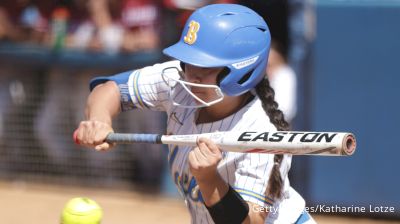 What Type Of Softball Bat Should I Buy?
What Type Of Softball Bat Should I Buy?Oct 5, 2023
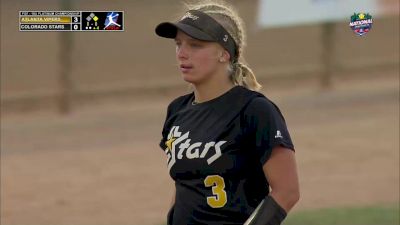 Replay: PGF Nationals Championships 16U/18U - 2023 2023 PGF Nationals Championships 16U/18U | Jul 28 @ 7 PM
Replay: PGF Nationals Championships 16U/18U - 2023 2023 PGF Nationals Championships 16U/18U | Jul 28 @ 7 PMSep 11, 2023
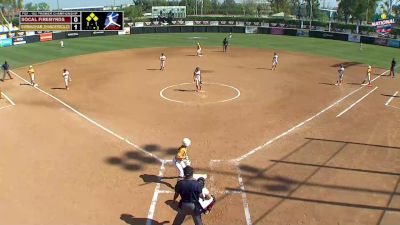 Replay: PGF Nationals Championships 10U Premier | Aug 6 @ 9 AM
Replay: PGF Nationals Championships 10U Premier | Aug 6 @ 9 AMSep 11, 2023
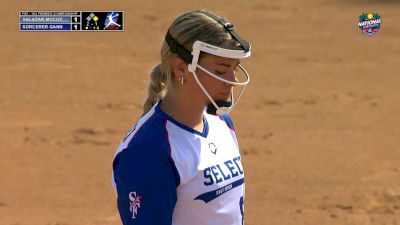 Replay: PGF Nationals Championships 16U/18U | Jul 29 @ 9 AM
Replay: PGF Nationals Championships 16U/18U | Jul 29 @ 9 AMSep 11, 2023
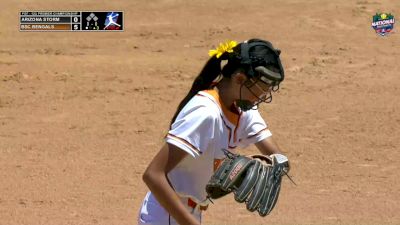 Replay: PGF Nationals Championships 12U Premier Championship | Aug 6 @ 12 PM
Replay: PGF Nationals Championships 12U Premier Championship | Aug 6 @ 12 PMSep 11, 2023
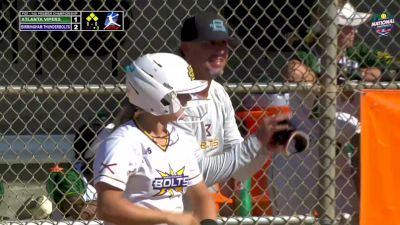 Replay: PGF Nationals Championships 14U Premier Championship | Aug 6 @ 3 PM
Replay: PGF Nationals Championships 14U Premier Championship | Aug 6 @ 3 PMSep 11, 2023
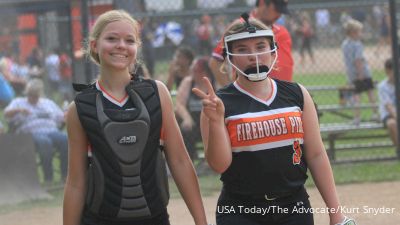 Differences Between Recreational And Travel Softball: What's Right For You?
Differences Between Recreational And Travel Softball: What's Right For You?Aug 23, 2023
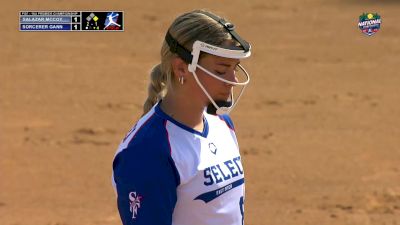 Replay: PGF Nationals Championships 16U/18U | Jul 29 @ 9 AM
Replay: PGF Nationals Championships 16U/18U | Jul 29 @ 9 AMAug 21, 2023
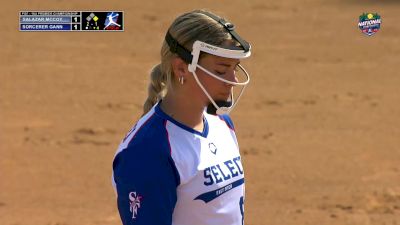 Replay: PGF Nationals Championships 16U/18U | Jul 29 @ 9 AM
Replay: PGF Nationals Championships 16U/18U | Jul 29 @ 9 AMAug 21, 2023